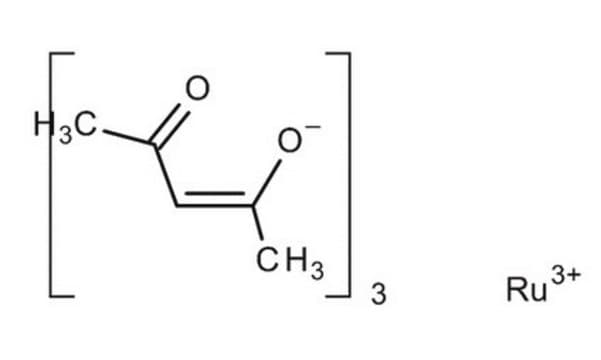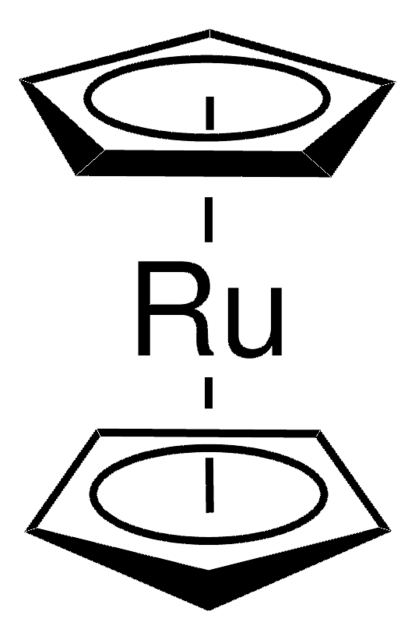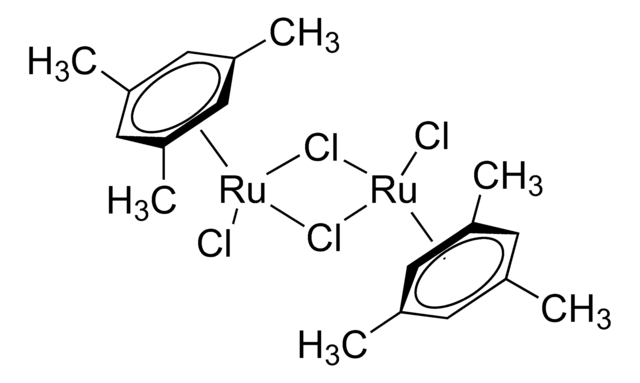282766
Ruthenium(III) acetylacetonate
97%
Synonyme(s) :
2,4-Pentanedione ruthenium(III) derivative, Ru(acac)3
About This Item
Produits recommandés
Niveau de qualité
Pureté
97%
Forme
solid
Pertinence de la réaction
core: ruthenium
reagent type: catalyst
Pf
260 °C (dec.) (lit.)
Chaîne SMILES
CC(=O)\C=C(\C)O[Ru](O\C(C)=C/C(C)=O)O\C(C)=C/C(C)=O
InChI
1S/3C5H8O2.Ru/c3*1-4(6)3-5(2)7;/h3*3,6H,1-2H3;/q;;;+3/p-3/b3*4-3-;
Clé InChI
RTZYCRSRNSTRGC-LNTINUHCSA-K
Vous recherchez des produits similaires ? Visite Guide de comparaison des produits
Description générale
Application
- As an electrolyte in redox flow batteries. It helps to enhance the voltage efficiency of batteries.
- As a starting material to synthesize homogeneously dispersed Ru nanoparticles for super capacitor applications.
- As a precursor to synthesize ruthenium single atom multifunctional electrocatalyst that exhibits outstanding catalytic performance for zinc-air battery and overall water splitting reaction.
- To fabricate Ru2P anodic catalyst for polymer electrolyte fuel cells. It helps to improve hydrogen oxidation reaction performance.
- As a reliable and stable cathode interfacial layer to significantly improve solar cell efficiency and stability.
Code de la classe de stockage
11 - Combustible Solids
Classe de danger pour l'eau (WGK)
WGK 3
Point d'éclair (°F)
Not applicable
Point d'éclair (°C)
Not applicable
Équipement de protection individuelle
dust mask type N95 (US), Eyeshields, Gloves
Faites votre choix parmi les versions les plus récentes :
Déjà en possession de ce produit ?
Retrouvez la documentation relative aux produits que vous avez récemment achetés dans la Bibliothèque de documents.
Les clients ont également consulté
Notre équipe de scientifiques dispose d'une expérience dans tous les secteurs de la recherche, notamment en sciences de la vie, science des matériaux, synthèse chimique, chromatographie, analyse et dans de nombreux autres domaines..
Contacter notre Service technique










